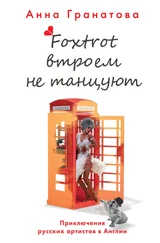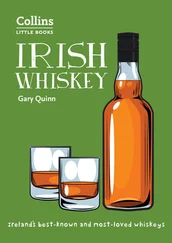“Right,” he said. Then he gave Leila a look that said Here we go, and he opened his door, stood up.
“Mark,” he called.
Mark looked at Leo, looked at his own phone, then really squinted at Leo. He walked over to the car. “That was quick,” he said.
“I’ll explain later. Get in,” said Leo. Without really meaning to, he had used a tough-guy, brook-no-argument voice. He opened the back door for Mark. But Mark either ignored or misunderstood Leo’s body language; he folded himself swiftly into the front seat. Leo couldn’t very well make a point of it. But Mark was always pulling shit like that.
“Lola Montes?” Mark said, as if he were running across her in some context that was only mildly unexpected, like at the tennis club. “Mark Deveraux. You helped me with the Jumble. We played cards.”
Oh, no, no, no, thought Leo. Not this time, pal.
“Mark, you don’t look very well,” said Leila.
Ha, thought Leo. Mark really didn’t look very well. He was the color of lunch meat.
“Wait, you two know each other?” Mark asked.
Neither Leo nor Leila answered that one. Instead, Leo asked, “You finished with your seminar in there?”
Mark nodded and said, “I believe so. You guys were waiting for me, weren’t you?”
“We were,” said Leila. “I need your help, and Leo said you’d help me.”
“You want to get out of here?” said Leo.
“More than anything,” said Mark.
They crested the hill that was the city’s natural western boundary and approached the dark mouth of the tunnel. Leo imagined what this place would have been like long ago for, like, a Clatsop Indian coming in from the coast to trade with the strange new foreigners. Probably there would have been no REMOVE SUNGLASSES sign, as there was now, before the tunnel entrance. What a world, thought Leo, in which a municipality or highway department or whatever made a huge sign about such a thing.
Concentrate, you idiot, he thought. Why was he such a muddy thinker? His thoughts splayed like roots, spreading outward, forking and subforking. Was that the pot? It had to be the pot, right? Years of it.
But no. He’d always been like this. Long before the pot. He’d always looked for ways to alter his outlook. As a boy he would spin around in the front hall until he fell over, and he loved the upside-down rides clamped in his dad’s strong hands; he could still recall how the chandeliers sprouted like mushrooms from the floor. Also at that age he could achieve a sort of glycemic state of grace by eating four or six mini-Snickers bars, a bag of which was on top of the refrigerator. So, no, he had always been a bit like this. Or upside-down rides are a gateway drug.
“Which one?” Leila asked Leo. He surfaced from his thoughts.
“Get in the far left lane.” There was an important trifurcation on Highway 26, just as you came through the tunnel. The one highway flayed itself into three and you had to choose your lane without hesitation. You had to beware of late-choosers who might slice across your lane. Leo had once seen an accident in this place, when a too-late-chooser miscalculated his vectors and hit the orange-coned apex that cleaved one lane from another. That point was called the gore point, for reasons having nothing to do with gore. And the water-filled things that he’d seen the car plow into were called impact attenuators. He could have used an impact attenuator that morning fifteen years ago when he woke in his smoke-filled bedroom and stood and saw greasy gray streams, wraithlike, slipping beneath his bedroom door and staggered down three marble flights of the town house calling for his mom and his dad while smoke curled around corners and the wallpaper popped into flame. Orange and amber and black lizard tongues lapped up the walls, like an upside-down ride gone fiendishly awry.
It would have been easier if that impact had been attenuated over the course of many years instead of being delivered within about five minutes — the two minutes it took to get outside onto the sidewalk and the three minutes he thought about going back inside to find his mom and dad or the dogs; those three minutes that he waited, a grown man afraid of fire, until the windows on the third story cracked like a shot and black smoke billowed out through the fissures.
There is a club for these people, the people who have waited outside the burning houses knowing that they will not go back in and knowing that the not-going-back-in will ruin them.
Hell, you could use impact attenuators for all levels of trauma — for getting dumped, getting fired. Or could you use a similar device to sort of extend life’s joys? Could you stretch out the moments in which you knew you were safe and loved? Were joy and trauma really the same thing, just positive and negative values of the same ordinals?
Fuck. Concentrate, he told himself. He said that part aloud, actually, but he was in the backseat and the other two didn’t hear him. They were chatting. Chatting! She was telling him about the jack of spades, about when she’d found it on her suitcase. Mark was smoking a mashed-looking cigarette, keeping its lit tip at the crack of the window. Leila was smiling. Why was she smiling for him? Leo worried that girls, despite all the feminist dogma they’d been taught to espouse, liked jerks. Or, more precisely, that they responded to jerk behavior. He knew this was unfair, to lump girls into one class like this, but he’d been burned before by a girl he loved, who’d left him for an incurious dimwit with a steely gaze and a big, swinging dick.
“Leo.” He came back. Leila’s eyes in the rearview, with meaning meant for him. “Can you do me a favor? Can you text those guys for me?” Maybe this was strategic, her acting all charmed by Mark; she needed to keep him occupied. That would be fine. She handed her funny phone back to Leo. Then she rattled off a number. It was like no phone number he’d ever heard.
He took a moment composing the text message; he didn’t quite understand what Leila had told her Dear Diary contact they were doing. So he went with: Package collected. Where can u meet us? He thought that was pretty slick.
“Take me back to my hotel, would you?” said Mark. “It’s downtown.” He named the hotel.
Leila found Leo’s eyes in the rearview again. There was a question in them. Leo understood: Should they even let Mark out of the car? Should they tell him now that they wanted him to betray his employer and join their side? What was the segue to that? Mark’s hotel was five minutes away. To stall for time, Leo started to issue driving directions that bent their trajectory, as a plane circles the airport. They went back across the Fremont Bridge and slipped onto I-5 South, where it scarred the east bank of the Willamette and separated river from city. Then up over the shitty old Marquam Bridge and back down onto the 405. If Mark noticed that they had crossed the same river twice, he didn’t let on. But he was sure to notice if they crossed it a third time on that same loop, so Leo told Leila to peel left off the 405 and drop down to the 30. That put them in a patch of tattered warehouses. As they waited at a red light, a forklift crossed their path moving a mammoth coil of steel.
“This really the way to downtown?” asked Mark, the penny wobbling on a ledge.
“Yeah, well, Leila should’ve turned left back there,” said Leo. “It’s my fault. I wasn’t clear. We’re not far now, though.”
“Who’s Leila?” said Mark. “She’s Lola.”
Fuck. He had forgotten to use her code name.
Leila took it in stride. “No. I’m Leila,” said Leila.
“You told me Lola,” said Mark.
“I did. I was traveling under an assumed name.”
Читать дальше












